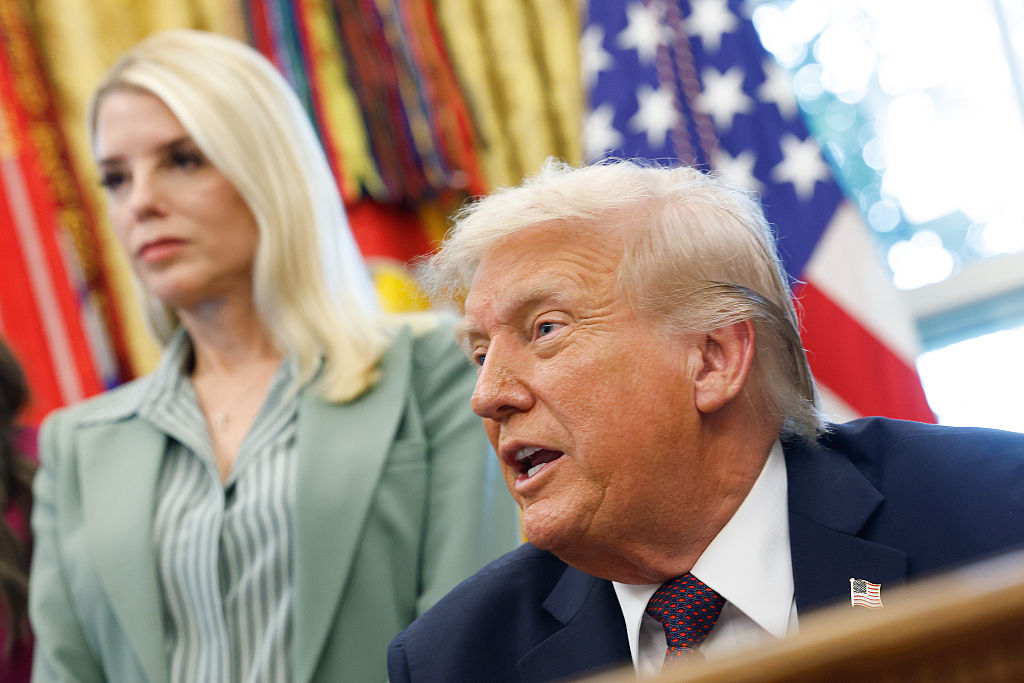Trump Is Promising Corporations a Deregulatory Bonanza
Donald Trump’s Department of Justice is asking corporations to identify state laws that “burden industry.” Corporate lobbies are responding to the request with wish lists of consumer protection laws they want the administration to preempt.

In July, the Trump administration sued California after residents voted to mandate that eggs sold in the state come from cage-free hens. (Kevin Dietsch / Getty Images)
The Trump administration is asking corporations to identify state laws “that hinder America’s economic growth, including those that burden industry.” Corporate lobbies are now responding to the Justice Department’s request with their wish lists of consumer protection laws they want the Trump administration to preempt.
This is no empty threat: in July, the Trump administration sued California after residents voted to mandate that eggs sold in the state come from cage-free hens.
According to corporations’ regulatory “kill list,” that legal attack should just be the beginning. In response to the Trump administration’s recent request, the big-business-backed Abundance Institute called for “clearing the path” for a total artificial intelligence takeover of the economy by federally preempting, or nullifying, all state AI regulations — a provision so controversial that Senate Republicans were forced to strip it from the Big Beautiful Bill.
The Information Technology and Innovation Foundation (ITIF), a pro-tech think tank, also requested a federal preemption that would totally ban state-level regulation on matters like data privacy, AI, and children’s online safety in order to “decrease costs and confusion.” That would include California’s Consumer Privacy Act, which gives consumers the right to delete the personal data that corporations collect about them and opt out of the sale or sharing of their information.
Meanwhile the American Bankers Association asked the Trump administration to lift state-mandated caps on credit card swipe fees, which cost consumers and businesses a record $187 billion last year. Such a move could impact Illinois, where a delayed rule — supported by 74 percent of voters — is set to ban banks and credit card companies from charging interchange fees on local and state taxes.
Bankers also want to roll back “intru[sive]” consumer-protection laws standing in between borrowers and predatory debt collectors, including a New York State rule requiring that banks provide verification of debts within thirty days of borrowers’ request or risk forfeiting their right to collection.
In fact, the American Bankers Association challenges the legality of any state laws regulating banking, echoing arguments recently made by Trump regulators that “state laws cannot prevent or significantly interfere with a national bank’s exercise of powers granted to it in its federal charter.”
This sentiment is shared by the right-wing Cato Institute, which argued that any attempts at legislating or regulating the technological industry should be reserved for Congress, in order to prevent “potential disruptions and economic costs.”
Meanwhile the International Center for Law and Economics, a conservative policy group, listed a litany of consumer protections it would like to see eliminated: state anti-monopoly laws, restrictions on the corporate practice of medicine, minimum and fair wage requirements, digital privacy rules, and marijuana decriminalization.